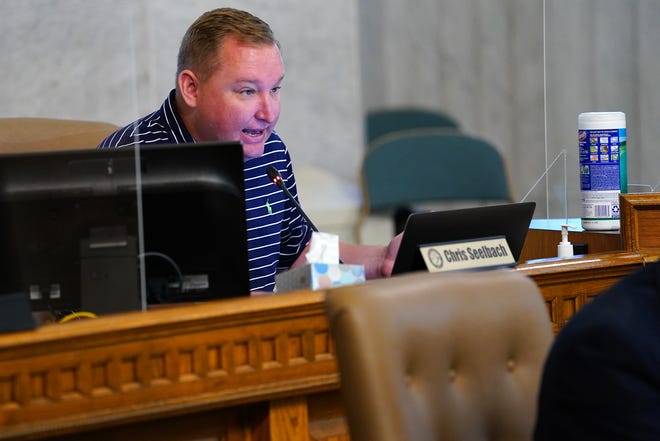Cincinnati City Council will not put earnings tax hike on ballot to pay for affordable housing.

Cincinnati City Council on Wednesday rejected a proposal to put a tax increase on the November ballot that would have paid for more affordable housing.
The vote was 7-2, with some city council members saying now was not the right time to raise taxes.
Only Seelbach and Jan-Michele Lemon Kearney, both Democrats, voted for the measure.
Councilman Chris Seelbach in June proposed the Cincinnati Affordable Housing Levy that would have asked voters to increase the city's earning tax from 1.8% to 1.9%.
If it passed, it would have generated an additional $17 million a year for affordable housing and would have expired in nine years. The earnings tax is paid by anyone who lives or works in the city. Seelbach estimated the increase would have cost a person earning the median household income an additional $3.38 a month.
"There’s nothing radical about this," Seelbach said Wednesday. "It’s simple, designed in cooperation with our administration. It asks voters for a price of a cup of coffee a month. Do you want to make transformational change to affordable housing?"
The pandemic and the potential loss of income tax revenue from people working remotely outside of the city limits.
"It's absolutely the wrong time to mess with the income tax," said Councilman Steve Goodin, a Republican.
Goodin also said he feared the ballot issue could do more harm than good. He said Issue 3 set back productive discussion on the debate over affordable housing.
Voters in May voted 73% to 27% to reject Issue 3, an affordable housing charter amendment that would have required council to put at least $50 million a year toward affordable housing.
"The last thing we need is a divisive ballot issue in which these complex issues are broken down to slogans that are misleading and it becomes an 'us vs them' argument," Goodin said. "It brings out the worst in both sides."
Mayor John Cranley said there's a big difference between a ballot measure put on by city council members and those put on by the public, "which demonstrates some level of interest by the public."
Voters had their say in May, he said.
"People with noble goals did in fact gather thousands of signatures, an effort this body put on the ballot," Cranley said. "This issue has had its fair chance."